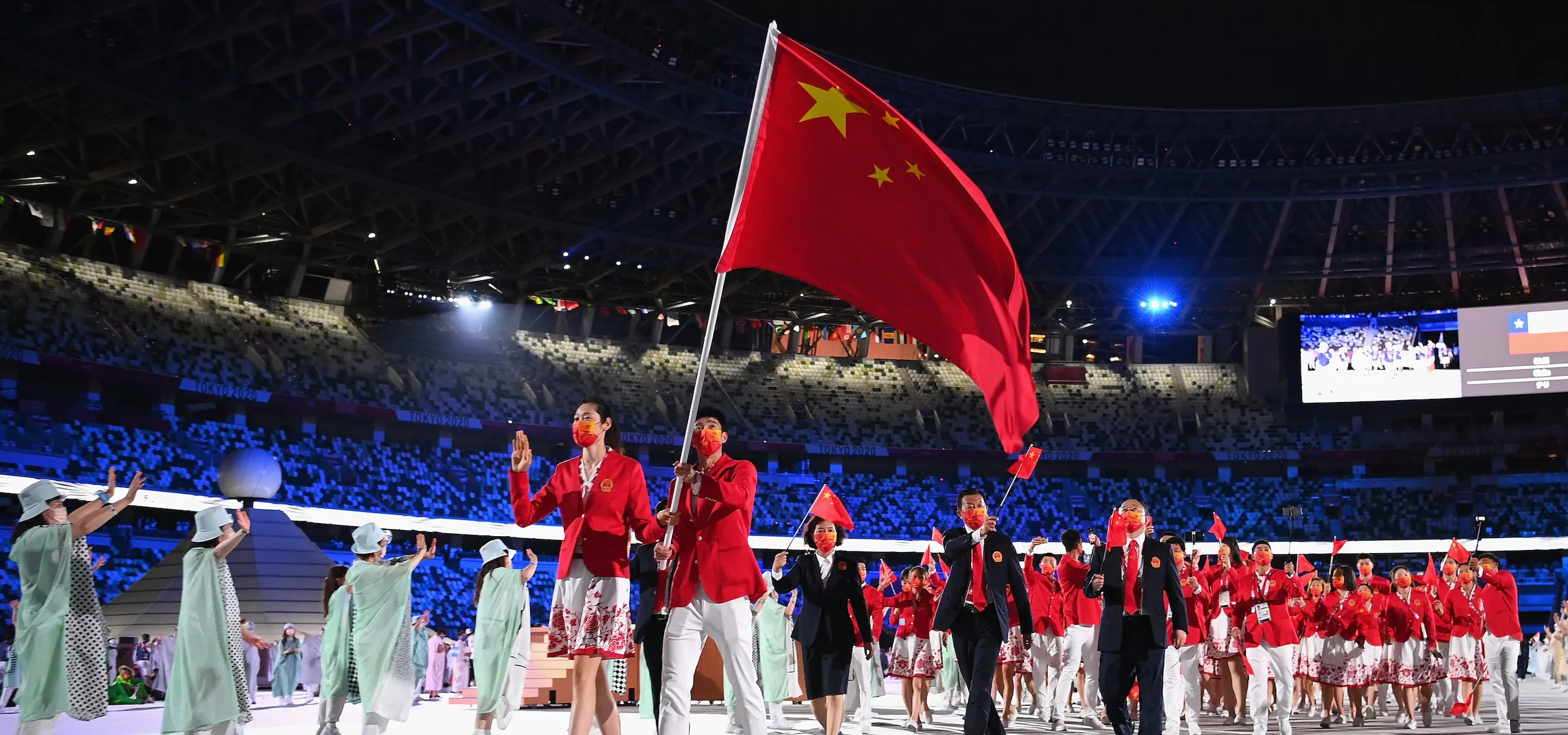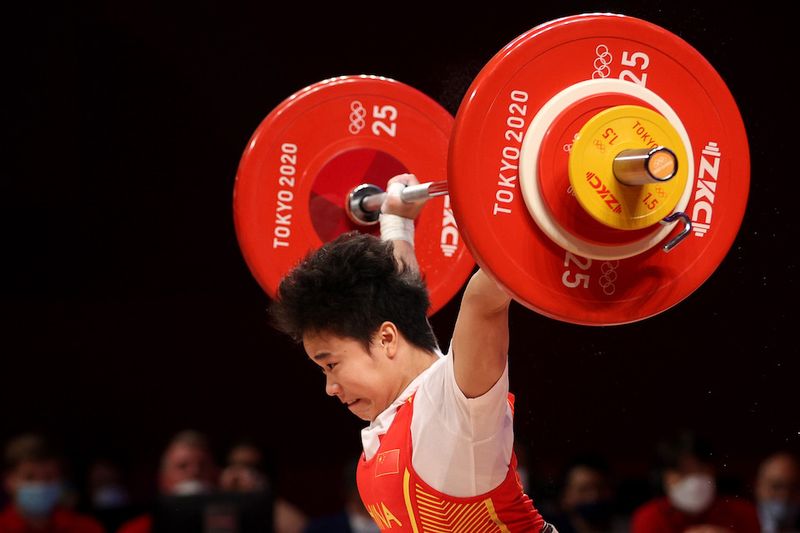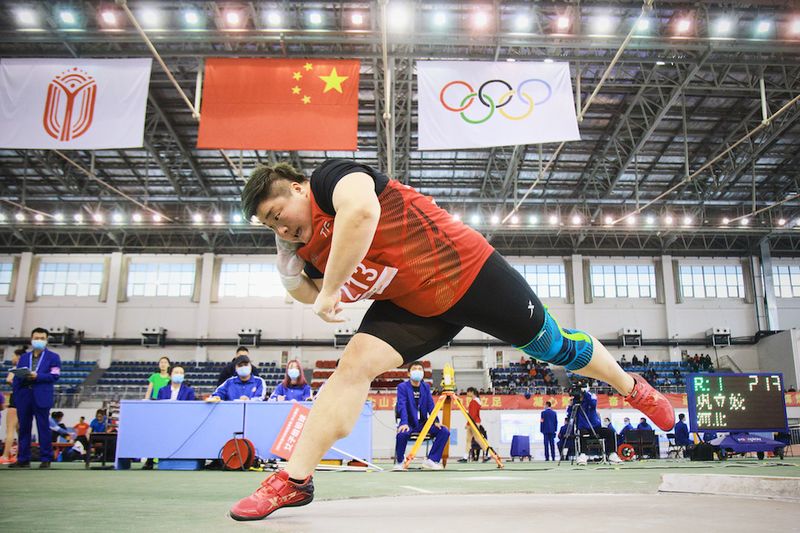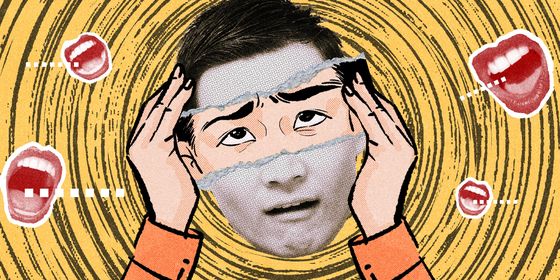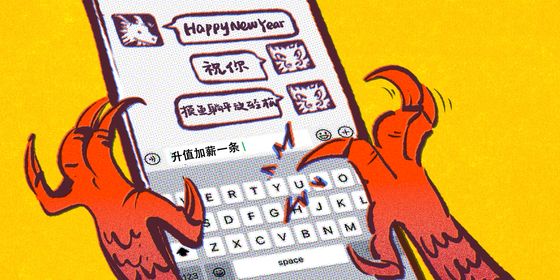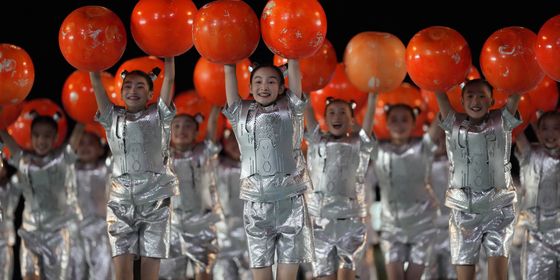Mysterious Oriental Power? YYDS? The Olympic Games has invented new language among netizens
The Tokyo Olympic Summer Games has just wrapped up, but in China, it will probably live on in the plethora of new slang terms coined by the competition.
Past Olympic Games have been responsible for coining new buzzwords like “primeval power (洪荒之力 hónghuāng zhī lì),” uttered by swimmer Fu Yuanhui at the 2016 Rio Olympics, and this year was no exception. While athletes are fighting for the championship, hoping to bring honor to their country, enthusiastic netizens were also locked in battle on the internet, inventing a variety of new terms to describe their favorite athletes, the slick moves they saw on TV, and their feelings about the competition:
Mysterious Oriental Power
On the afternoon of July 24, the second day of the Olympics, the Chinese team welcomed their second gold medal with weightlifter Hou Zhihui’s victory in the women’s 49 kg weightlifting class. Apart from her excellent performance, what impressed Chinese people most were two items that could rarely be seen in the global sphere: the thermos cup (保温杯 bǎowēnbēi) that her coach handed her during break, presumably full of hot water for her to sip on; and the essential balm he handed her to sniff from, also known as fengyou essence (风油精 fēngyóujīng) or “Tiger Balm” after the packaging of a well-known brand.
Chinese culture is are well-known for its obsession with hot water, regarded as a cure-all for ailments. Fengyou essence is an oily, usually green balm containing menthol, camphor, eucalyptus oil, and eugenol, which is used for itching of mosquito bites, easing headaches or dizziness, and refreshment. Witnessing their athletes win with the help of traditional household remedies, Chinese netizens felt a closer connection with their national heroes, and great pride in their domestic products. “When her coach gave her hot water from the thermos cup, I knew her performance would be steady (当教练递给侯志慧保温杯时,我就知道这场比赛稳了 Dāng jiàoliàn dì gěi Hóu Zhìhuì bǎowēnbēi shí, wǒ jiù zhīdào zhè chǎng bǐsài wěn le),” one comment on Weibo read.
They also combined this incident with the phrase “mysterious Oriental power 东方的神秘力量 (dōngfāng de shénmì lìliàng),” originally a phrase from Chinese e-sport commentator Huang Xudong. Fans of StarCraft 2 noted that many European or American players started to lose after being praised by Huang, so they jokingly that Huang had mysterious Eastern powers that could jinx Western players. At this Olympics, many netizens declared, “Is this the mysterious Oriental power? The essential balm and the thermos cup are our secrets to winning (这就是来自东方的神秘力量吗?风油精和保温杯是我们的夺冠秘诀 Zhè jiù shì lái zì dōngfāng de shénmì lìliàng ma? Fēngyóujīng hé bǎowēnbēi shì wǒmen de duóguàn mìjué).”
This Olympics is not the first time Chinese remedies made an international splash. The term “Chinese-style wellness (中式养生 zhōngshì yǎngshēng)” has trended about a decade in international sports, notably after American swimmer Michael Phelps revealed that he used the traditional Chinese therapy of cupping (拔火罐 bá huǒguàn) to help blood circulation and relieve muscle tension during the 2012 Olympics in London.
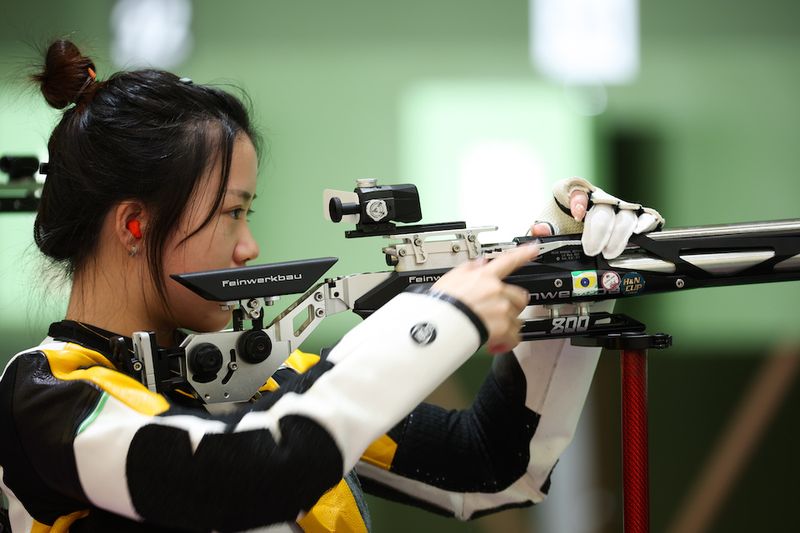
Yang Qian, the Tokyo Olympic's first gold medalist (VCG)
YYDS
“China national table tennis super troupe yyds (中国国乒天团yyds Zhōngguó guópīng tiāntuán yyds)!” “China diving dream team yyds (中国跳水梦之队yyds Zhōngguó tiàoshuǐ mèngzhīduì yyds)!” “Tokyo’s first gold medalist Yang Qian yyds (东京奥运会首金杨倩yyds Dōngjīng Àoyùnhuì shǒujīn Yáng Qiàn yyds)!”… During the Olympics, you may have seen posts and comments like these all over the internet.
Similar to the term GOAT (“greatest of all time”) in English, the term YYDS is the pinyin abbreviation of “eternal god” or “forever god (永远滴神 yǒngyuǎn dī shén),” which is used to describe somebody or something that is awesome. It also originated in e-sports, shouted out by e-sports player Shiny Ruo to his idol Uzi, a League of Legends player. Later, the term was adopted for online chatting. It got wide traction in online discussions during the Olympics, as netizens found it could fully express their admiration and respect to athletes who create miracles.
The Olympic seriously modified my aesthetics
During the Olympics, the hashtag “The Olympic seriously modified my aesthetics (奥运会狠狠修正了我的审美 Àoyùnhuì hěnhěn xiūzhèngle wǒ de shěnměi)” also did its rounds on Weibo’s trending list.
Having spent years being bombarded by mainstream beauty standards like “cold-white skin (冷白皮 lěngbái pí),” “A4 waist (A4腰 Ēi sì yāo),” “sharp-angled shoulders (直角肩 zhíjiǎo jiān),” or “supermodel legs (超模腿 chāomó tuǐ),” netizens were relieved to get a chance to appreciate fit and powerful physiques.
They praised women’s epee individual gold winner Sun Yiwen, sprinter Ge Manqi, and Quan Hongchan, the talented 14-year-old gold medalist diver, for their “blemished skin, strong and firm body, and unyielding expression in their eyes (有瑕疵的皮肤, 健实有力的身躯,不屈不柔的眼神 Yǒu xiácī de pífū, jiānshí yǒulì de shēnqū, bùqū bùróu de yǎnshén),” declaring their “pushing beyond our limits is the source of humanity’s beauty (将极限一点点延向更广阔,才拥有的‘人’之美 Jiāng jíxiàn yīdiǎndiǎn yánxiàng gèng guǎngkuò, cái yōngyǒu de ‘rén’ zhī měi).”
The Olympic Games are not only a platform for people to showcase their national pride, but also partake in other discussions about winning and losing, health and hard work. With the ending whistle of the Olympics blown, the cheer and excitement, as well as disappointment and anger, may be simmering down...though the Winter Olympics of 2022 are just around the corner.





